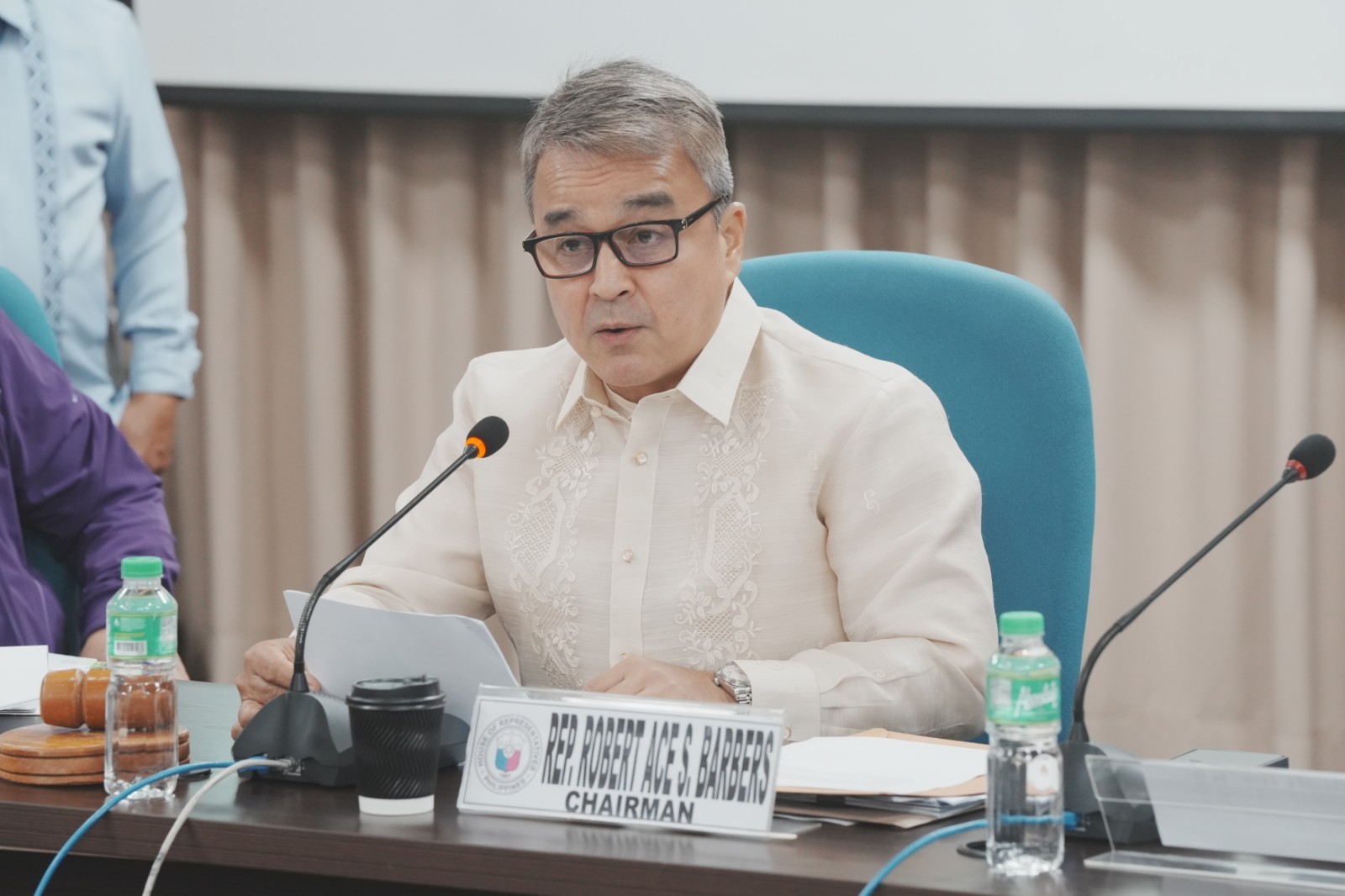
Surigao del Norte Rep. Robert Ace Barbers FILE PHOTO
MANILA, Philippines — Surigao del Norte 2nd District Rep. Robert Ace Barbers agreed with the claim that a “grand conspiracy” exists within the Philippine National Police (PNP), blaming the past administration’s drug war for allegedly corrupting officers.
In a statement on Tuesday, Barbers said he had supported the Department of the Interior and Local Government (DILG) move to investigate drug operations since 2016, noting that former President Rodrigo Duterte’s anti-drug campaign only allowed systemic corruption in the police force.
READ: Gov’t to probe drug seizures since 2016
According to Barbers, he supported the anti-drug campaign, but the discoveries that came out about the drug war were undeniable.
“While I supported the anti-drug campaign of the previous administration as a necessary response to a growing crisis, it is now undeniable that it became a catastrophic failure,” Barbers said.
“Instead of upholding justice, it opened the floodgates to corruption in the PNP, fostered a culture of impunity that left thousands of innocent lives destroyed, and even allowed recycled drugs to poison our streets again,” he added.
Barbers said this after Interior Secretary Jonvic Remulla claimed that a conspiracy to conceal crimes exists within the PNP, in reference to the indictment of 30 PNP officers over a fabricated drug haul in 2022.
READ: DILG’s Remulla sees conspiracy to conceal crimes within PNP
On October 9, 2022, PNP reported that anti-narcotics operatives seized P6.7 billion worth of shabu from a certain Ney Atadero during a hot pursuit operation. However, no less than former Interior Secretary Benjamin Abalos Jr. said it appears there was an attempt to cover up the operation.
According to investigations by the former DILG administration, various PNP officials allegedly attempted to cover up the arrest of anti-narcotic operative Police M/Sgt. Rodolfo Mayo, allowing him to conduct the follow-up operation despite being arrested in the initial drug bust.
READ: DILG chief unveils ‘massive attempt to cover up’ dismissed cop Mayo’s arrest
The House of Representatives committee on dangerous drugs headed by Barbers investigated the issue and recommended the filing of criminal complaints against Mayo’s former police anti-drug unit head, Brig. Gen. Narciso Domingo.
During the investigations, it was revealed that a different police officer arrested Mayo, and not the officers first reported to have done so. It was also officially labeled as a buy-bust operation and not a hot pursuit.
Remulla said these issues would prompt the DILG to go back to drug operations launched in 2016, as the reward system supposedly created problems within the PNP.
Barbers noted that this was proof the Duterte administration’s drug war policy led to systemic abuse, as there were fears that the illegal drugs seized during the operation would be recycled if the cover-up attempt hadn’t been revealed, and that the promise of a reward inspires such actions.
Both Barbers and Remulla were referring to the alleged reward system revealed by retired Police Col. Royina Garma during a House quad committee hearing. According to Garma, Duterte contacted her in May 2016 about creating a task force that would copy the rewards system in Davao City where officers who kill alleged drug suspects would get cash grants.
READ: Garma says Davao drug war template, rewards system applied in entire PH
“This only confirms what we in the quad comm have uncovered: the Duterte administration’s reward system turned law enforcement into a criminal enterprise. It prioritized kill statistics and inflated accomplishments over genuine reform and public safety,” Barbers said.
“Officers fabricated evidence, inflated statistics, and exploited the system for personal profit, while those who should have been held accountable were shielded,” he added. “By prioritizing kill statistics over accountability, he turned the PNP into a rogue organization that thrived on shortcuts and blood money.”
PNP, on the other hand, rejected claims of an alleged “grand conspiracy” to conceal criminal activities within its ranks, saying that these incidents “are not institutionalized in the entire organization.”
“No PNP chief, regardless of the present administration or the previous administration, would allow such an illegal scheme,” outgoing PNP spokesperson Brig. Gen. Jean Fajardo said.

